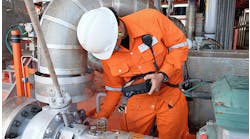In the United States, The Department of Labor has published the testimony given to a U.S. Senate Committee by Jordan Barab, deputy assistant secretary for the Occupational Safety and Health Administration (OSHA) this summer. Barab summarized that in the past four months alone, at least 58 U.S. workers had died in explosions, fires and collapses at refineries, coal mines, an oil drilling rig and a power plant construction site. In the last five years, 20 serious incidents occurred in refineries. Each incident repeated a lesson that should already have been learned by the industry. Essential safety lessons are not being communicated.OSHA, in the wake of the disastrous chemical release in Bhopal, India, and several other significant chemical accidents, issued its Process Safety Management of Highly Hazardous Chemicals standard nearly 20 years ago. This standard has not prevented OSHA seeing similar violations in too many of the refineries they inspect.Where does OSHA go from here? Efforts will include both a strong and credible enforcement presence. Barah closed with a plea to the Senate to pass the Protecting America's Workers Act (PAWA): "Finally, we need to pass the PAWA, which would significantly increase OSHA's ability to protect workers, and specifically workers in refineries and chemical plants." He continued, "Workers need to feel that they are protected when reporting these events [close calls and near misses] and exercising other health and safety rights.The enhanced whistleblower protections that are included in PAWA would go far toward ensuring that workers are protected for speaking out."

Leaders relevant to this article:



